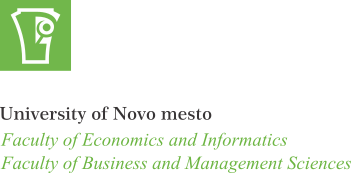Role of Education in Career Development: the Aspect of Economics Graduates
Keywords:
career, career planning and development, competences, education, lifelong learningAbstract
Nowadays, career is increasingly gaining on importance for both an individual and organizations. It has been studied by many authors, and numerous definitions have been introduced, changing over the course of time. Traditional definitions are defenders of vertical promotion, according to the working environment. In contemporary definitions, however, development and promotion are visible in private and personal lives. Career is a lifetime process, therefore it needs to be carefully planned. In the process of career development, an individual is discovering their own beliefs, values, interests, advantages and disadvantages. In accordance with the mentioned, they set realistic objectives and paths to achieve them. In addition to a number of factors, an important role in career development is given to competences and education. Theorists point out that the main factor of success is the constant change and adaptation to new situations in the environment. One of the crucial steps in career development is also young people‘s entry into the labour market, where they are faced with many issues. The mentioned issues have engaged the European policy to use different activities in the scope of career orientation, which guide the paths of life. The main purpose of the article is to present the career development of the full-time study graduates of the higher education study programme Business and Management at the Faculty of Business, Management and Informatics Novo mesto. The research results indicated useful guidelines for further work, especially in the sense of importance of the development of general and course-specific competences, which can greatly fulfil personal expectations and social needs.
References
Bogićević Milikić, B. (2011). Menadžment ljudskih resursa. Beograd: Centar za izdavačku delatnost Ekonomskog fakulteta u Beogradu.
Brečko, D. (2009). Načrtovanje karierne poti kot dodana vrednost v organizaciji. HRM, 7, št. 28, str. 12–21.
Cvetko, R. (2002). Razvijanje delovne kariere. Ljubljana: Fakulteta za družbene vede.
Delors, J. et al. (1996). Učenje – skriti zaklad. Ljubljana: Ministrstvo za šolstvo in šport.
Đorđevič, B. (2012). Uspeh u karijeri. Niš: Ekonomski fakultet Univerziteta u Nišu.
Erevanski komunike (2015). Ljubljana: Ministrstvo za izobraževanje, znanost in šport.
Ferjan, M. (2005). Management izobraževalnih procesov. Kranj: Moderna organizacija v okviru FOV
Ivanuša – Bezjak, M. (2006). Zaposleni - največji kapital 21. stoletja. Maribor: Pro-Andy.
Kohont, A. et al. (2011). Terminološki slovarček karierne orientacije. Ljubljana: Zavod RS za zaposlovanje.
Kotler, P. (2005). Management trženja. Ljubljana: GV založba.
Merkač Skok, M. et al. (2010). Razvoj kariere. Celje: Fakulteta za komercialne in poslovne vede.
Režek, R. (2010). Izobražuj se in uspešna kariera ti ne uide. Vzgoja, 12/1, št. 45, str. 25–26.
Svetlik, I. (2005). O kompetencah. V: Pezdirc, M., S. (ur.). Kompetence v kadrovski praksi. Ljubljana: GV Izobraževanje, str. 13–27.
Vujić, V. (2004). Menadžment ljudskog kapitala. Opatija: Fakultet za turistički i hotelski menadžment.
Vukovič, G. et al. (2006). Zagotavljanje kadrovskih virov. Kranj: Moderna organizacija.
Downloads
Published
How to Cite
Issue
Section
License
Copyright (c) 2022 Journal of Economic and Business Sciences

This work is licensed under a Creative Commons Attribution 4.0 International License.




